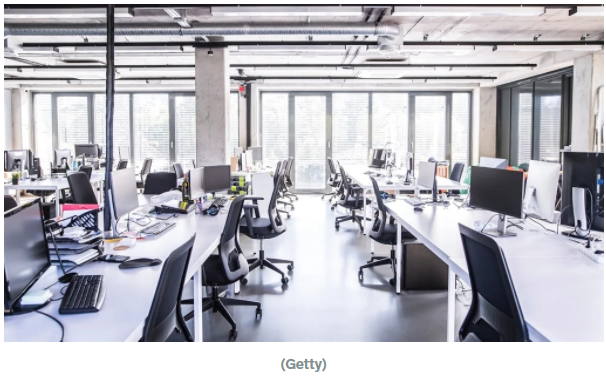- The work-from-home shift during the coronavirus pandemic has brought surprising benefits to companies.
- Workers are more productive, healthier and happier.
- Now companies like Dimension Data, Shoprite and RMB are looking at longer-term "blended" options of allowing staff to work from home at least part of the time.
- For more articles, go to www.BusinessInsider.co.za.
Almost six months ago, companies were forced to move corporate operations from offices to makeshift workplaces in living rooms, kitchens and bedrooms across South Africa – with surprising consequences.
Large corporates report a marked boost in productivity, along with other benefits, that will probably result in many adopting a “blended” model of allowing employees to work from both the office and home in future.
“For a professional or knowledge-based business environment like ours we’ve actually seen that people can be highly productive when working from home,” RMB CEO James Formby told Business Insider SA. “If anything, we’ve found that people are working harder and have found this way of working more intense.”
During the pandemic, the average workday increased by 48.5 minutes, a recent study among 3.1 million workers across the world by Harvard Business School and New York University found.
“Productivity levels improved even though people were faced with enormous levels of stress and uncertainty,” says Michaela Voller, Chief HR Executive at Dimension Data. Employees had to cope with home-schooling their children, while also having extended families moving in during the first phases of lockdown.
Still, despite these pressures, working from home made employees happier.
RMB says the consistent feedback has been that there are real positives to working from home, not least of which are avoiding traffic and having more time to spend with family.
There were added advantages for companies: Capitec, for example, saw a marked decline in sick days among its 2,000 head-office employees who were forced to work from home. Especially in its call centres, where hundreds of people work in the same space and illnesses like flu usually spread fast, fewer people were getting sick as they were not exposed to each other.
The increased reliance on teleconferencing – Shoprite estimates that its stay-at-home workforce holds 2,384 scheduled virtual meetings every day – has also brought additional benefits.
Cheree Dyers, CEO of Cape Town-based asset manager Prescient Investment Management, says the proliferation of online meeting tools has widened Prescient’s potential talent pool to beyond South Africa.
“For example, we use a lot of data scientists,” she says. “It’s actually become a lot easier to find and collaborate with specialists like these, many of whom reside offshore.”
Nevertheless, RMB’s Formby says employees do miss the personal interaction with colleagues. While online meetings still enable formal engagement, informal interactions such as having a coffee or lunch with a team member are harder to replicate.
He predicts that many companies will increasingly opt for blended models that will see employees spending two or three days per week in the office with the remainder spent working remotely.
“I think that is a model that is eminently achievable and one that we would like to move to, but of course it does have several consequences,” he says. “Moving to a blended model would require some reconfiguration of office spaces to destinations where employees can go to collaborate or engage with their colleagues.”
Shoprite says it is currently investigating a longer-term work-from-home policy, and Dimension Data also believes that a hybrid model in which employees split their working week between the office and home, is “the most viable option for the long-term”.
A survey of its employees showed that 50% preferred to work from home at least half of the time. The company is now considering giving employees the option of working two days a week “virtually” - either at home or at a coffee shop - provided they are able to access an office hub at short notice if required.
“The future of our workplace is based on the philosophy that for the vast majority of workers, work is something you do and not somewhere you go,” says Dimension Data’s Voller.
Prescient requires staff to spend at least three-days per week in the office, but Dyers says Covid-19 has challenged the conventional wisdom that being in the office makes someone productive. In many ways, she says staff are more productive when working from home.
“You don’t need to see people to see if they’re productive,” she says. “The caveat is that you have to have good leadership and accountability at every level in the organisation.”
Receive a daily update on your cellphone with all our latest news: click here.
Get the best of our site emailed to you daily: click here.
Also from Business Insider South Africa:
- Meet the 15 richest people in Africa who have a collective net worth of more than R1 trillion
- Foreign travel guaranteed only to and from other African countries, cruise ships not welcome
- Zimbali hotel in business rescue as Kuwaiti owners were 'left with no alternative'
- Full global recovery from Covid-19 may take 5 years, World Bank chief economist says
- The US just banned TikTok and WeChat app downloads from September 20
Article Source: https://www.businessinsider.co.za/sa-companies-will-allow-their-employees-to-work-from-home-2020-9





